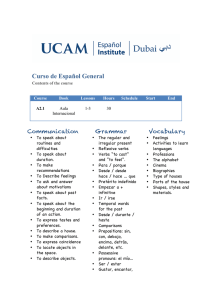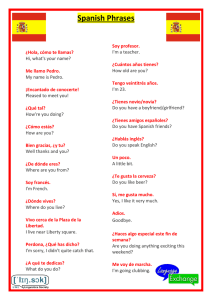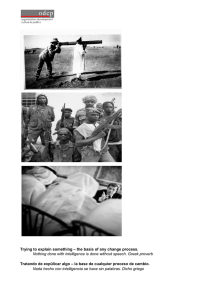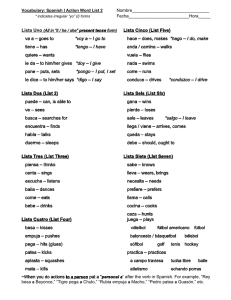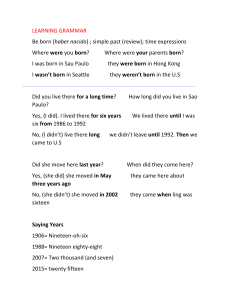HACER EXPRESSIONS AND HABER EXPRESSIONS
Anuncio
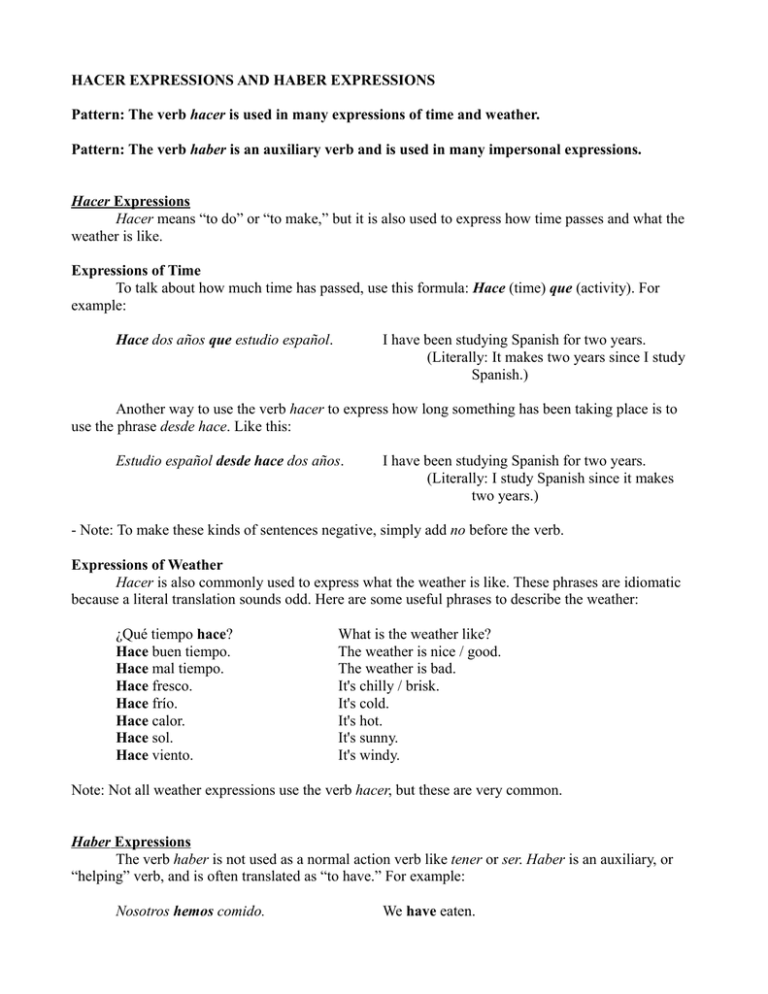
HACER EXPRESSIONS AND HABER EXPRESSIONS Pattern: The verb hacer is used in many expressions of time and weather. Pattern: The verb haber is an auxiliary verb and is used in many impersonal expressions. Hacer Expressions Hacer means “to do” or “to make,” but it is also used to express how time passes and what the weather is like. Expressions of Time To talk about how much time has passed, use this formula: Hace (time) que (activity). For example: Hace dos años que estudio español. I have been studying Spanish for two years. (Literally: It makes two years since I study Spanish.) Another way to use the verb hacer to express how long something has been taking place is to use the phrase desde hace. Like this: Estudio español desde hace dos años. I have been studying Spanish for two years. (Literally: I study Spanish since it makes two years.) - Note: To make these kinds of sentences negative, simply add no before the verb. Expressions of Weather Hacer is also commonly used to express what the weather is like. These phrases are idiomatic because a literal translation sounds odd. Here are some useful phrases to describe the weather: ¿Qué tiempo hace? Hace buen tiempo. Hace mal tiempo. Hace fresco. Hace frío. Hace calor. Hace sol. Hace viento. What is the weather like? The weather is nice / good. The weather is bad. It's chilly / brisk. It's cold. It's hot. It's sunny. It's windy. Note: Not all weather expressions use the verb hacer, but these are very common. Haber Expressions The verb haber is not used as a normal action verb like tener or ser. Haber is an auxiliary, or “helping” verb, and is often translated as “to have.” For example: Nosotros hemos comido. We have eaten. Haber is also commonly used as an impersonal verb in the conjugation hay, meaning “there is” or “there are.” Hay un libro en la casa. Hay mucha gente en la plaza. There is a book in the house. There are a lot of people in the plaza. - Note: Hay can also be used in some weather expressions: Hay sol. Hay niebla. It's sunny. (Literally: there is sun) It's foggy.
